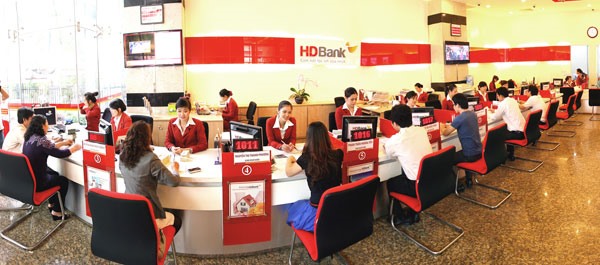 Economy
Economy

Many banks, especially small- and medium-sized ones, are offering high interest rates and promotion programmes to compete for the mobilisation of deposits.
 |
| HDBank has a promotion programme with a total value of nearly VNĐ14.5 billion (US$638,700) for customers who deposit from just VNĐ60 million for at least one month. - Photo HDBank |
HÀ NỘI — Many banks, especially small- and medium-sized ones, are offering high interest rates and promotion programmes to compete for the mobilisation of deposits.
They are offering high interest rates for long-term deposits to lure customers and to meet the rising capital demands in the last months of the year.
For example, customers will enjoy interest rates of 8.2 percent per year for an 18-month term when depositing money at Viet Capital Bank, or 8 per cent per year for a 24-month term at VietABank.
Besides, to attract customers, apart from high interest rates, the banks will also offer attractive promotion programmes. For example, HDBank has a promotion programme with a total value of nearly VNĐ14.5 billion (US$638,700) for customers who deposit from just VNĐ60 million for at least one month.
Kienlongbank and Viet Capital Bank are also attracting capital through promotion programmes for depositors nationwide, with a total value of more than VNĐ6.8 billion and VNĐ2 billion, respectively.
Apart from long term, some banks have also added an interest rate range of 0.2-0.4 per cent per year for medium-term deposits. For example, at PVcombank, customers will enjoy the highest interest rate of 7.9 per cent per year and an additional interest rate of 0.4 per cent per year when depositing at least VNĐ30 million for a six-month term and above.
At larger banks, competition in savings mobilisation is also rather intense, with an average interest rate of 5.5-6 per cent per year for terms of 1-6 months, and 7-7.8 per cent per year for terms from one year. For example, at a Vietcombank’s transaction office in HCM City, when customers withdraw a large amount of money, the manager quickly offers invitations to make a deposit, with interest rates being calculated on a daily basis.
Another large bank allows customers to withdraw part of their principal when they urgently need capital and enjoy a no-term interest rate for that money, while the rest of the amount still enjoys a term interest rate.
Financial experts said that the last quarter of the year is a very good time for banks to improve outstanding loans, as the capital demand of businesses has always increased during this period. However, banks should be cautious with the bad debt risk, as credit growth is high. — VNS